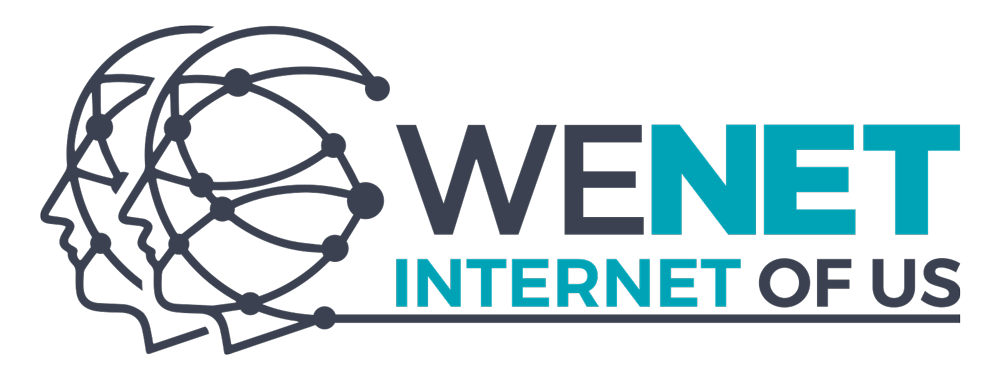How to ensure a democratic use of information technology systems?
Dr. Jessica Heesen, head of the research focus Media Ethics and Information Technology at the International Center for Ethics in the Sciences (IZEW) of the University of Tübingen, presented WeNet platform as an example of independent platform to improve social interactions. She sheds light on ethical questions about freedom of expression in social media and on the value-oriented development of artificial intelligence. She is a member of the Forum Privacy and Self-Determined Life in the Digital World – Forum Privacy (BMBF) and the Media Ethics Network.
In November the German Federal Ministry for Science and Education appointed her as head of the Working Group “IT-Security, Privacy, Legal and ethical framework” of Germany’s Platform for AI, www.plattform-lernende-systeme.de
The working group focuses on security, safety, and privacy issues in the development and application of self-learning systems. It also analyses the concurrent legal and ethical demands and works on fundamental questions, such as:
- Which challenges occur when it comes to liability, criminal responsibility and fundamental legal and ethical issues?
- How can we shape those systems to preserve human autonomy and basic rights, equal opportunities and prevent discrimination?
- Is it reasonable to introduce a right for data ownership?
- How can society actively participate during the implementation of self-learning systems?
More info (in German): www.plattform-lernende-systeme.de
Protection of Privacy – Protection of Democracy, 16 November 2019, Stuttgart
Privacy is an important condition for democracy, the rule of law and informational self-determination. Digitalization and comprehensive global networking create new needs for protection, but also the critical redefinition of privacy between individual and societal expectations as well as economic opportunities.
In this talk Dr Jessica Heesen mentioned WeNet as commendable example for an independent platform to improve social interactions. Democracy needs new players in the field of social networks that stand for participation in social life without surveillance and without commercial interests.
To know more: www.lpb-bw.de
Digital Sovereignty and Data Ethics as Democratic Responsibility
Studium Generale der Universität Mainz, 31 October, 2019
What does it mean to democratically take responsibility for a social transformation? It means making elementary values and processes of democratically constituted societies the engine of change. However, values such as participation, freedom of speech and media freedom or trust are not easy to “apply” to digital technologies. They are challenged or even endangered in a dataficated society. The realization of values in a digital society is bound to design solutions, political framework conditions and the digital maturity of the users. Dr. Jessica Heesen discussed the central questions of an ethic of digitization, takes a critical look at the concept of digital sovereignty and discusses solutions for the value-oriented and democratic use of information technology systems. She also stressed the importance of diversity and plurality in social networks, presenting the successful implementation of WeNet platform.
To know more: www.studgen.uni-mainz.de

To stay updated to WeNet news and developments, subscribe to our newsletter http://bit.ly/WeNet_subscribe






